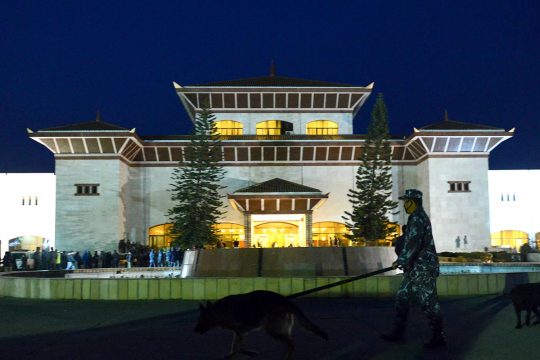Transitional justice has been a stated priority throughout Nepal’s peace process following the end of the ‘People’s War’ in 2006, but it took nearly 10 years before the two truth commissions (Truth and Reconciliation Commission TRC and Commission for Investigation on Enforced Disappeared Persons CIEDP) investigating war-era crimes were established. While these processes have enjoyed nominal support, the Nepali government never prioritized transitional justice in its national agenda, and the Commissions have not been prevented from fulfilling their mandates.
The stalled transitional justice process has eroded trust between victims advocacy groups and the two Commissions. While the Commissions were set to end earlier this month, they recently received a yearlong extension to finish their important work, and it is critical that this opportunity is not wasted. The Commissions, government, and international organizations must listen to victims advocacy groups to ensure that the transitional justice process results in a broad transformation that meaningfully addresses the causes and consequences of the conflict.
The current process remains stubbornly rooted in the state tradition of hiding the truth: Even today, the transitioning state and leading parties contain perpetrators from both sides of the conflict, and the state actors are not playing a supportive role to advance the justice process.
Support from the international community may have mitigated some of the challenges the Commissions faced, but this was withheld in protest of the amnesty provision in the Commissions’ mandates. Rather than working with victims and their families to determine a way forward, these agencies have prioritized rigid notions of accountability over the needs of those impacted by conflict. International agencies have fully controlled the transitional justice debate, imposing universal narratives that have not been localized within the Nepali context, and that don’t support the broader agenda of activists on the ground. For local activists, the focus on accountability alone ignores the structural injustices that allowed the conflict-era crimes to occur. Activist groups demand that the process also address the root causes of the conflict, such as poverty, exclusion, structural violence, and social injustices.
The focus on accountability by the large international organizations has led to a confused an inconsistent response from smaller civil society organizations. Human rights groups have polarized around the question of whether or not to support the Commissions, resulting in an ineffective response that neither effectively addresses the flaws in the formal process nor supports conflict victims immediate needs.
Networks of conflict victims and activists across the country are speaking out for their needs and standing up for their rights. They seek a broader range of reforms than the accountability agenda set by the international community, and have mobilized to demand victim-centered transitional justice mechanisms that address structural inequalities, conflict-informed reparations, and historical memory of the conflict.
In addition to speaking out for reform, conflict victims have chosen to adopt a strategy of critical engagement to work with the Commissions. Despite the flaws of the Commissions, conflict victims see them as the best opportunity to address conflict-era injustices. As a result, victims groups such as the National Network of Families of the Missing and Disappeared (NEFAD) have encouraged their members, families and all conflict victims to register their cases with the Commissions, and have launched efforts in rural communities to ensure that families understand their rights and are able to file complaints. As a result of this nationwide mobilization, people have brought 58,052 cases to the TRC and over 3000 cases to the CIEDP. The number of people willing to engage with the Commissions demonstrates the need for justice and reconciliation across Nepal.
Now this is time to expand the boundaries of inclusion and advance the transitional space to include conflict victims and other marginalized groups. A more inclusive transitional justice process will move the debate beyond issues of accountability to include the full range of injustices suffered by conflict victims. While victims want to see perpetrators brought to justice, they also need recognition of their suffering, conflict-informed retribution, and meaningful reforms that advance social justice. NEFAD and other advocacy groups are committed to continuing the process of critical engagement as the Commissions produce their reports credible and strong to support victim needs.





